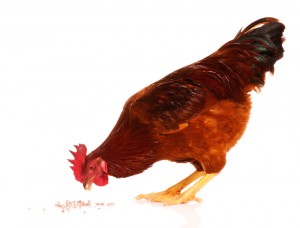Tyson Foods announced that as of October 1, 2014, it will no longer use antibiotics in its chicken hatcheries. Antibiotic use in farm animals for reasons other than treating disease has been linked to the evolution and development of antibiotic-resistant bacteria that have made the jump from animals to humans. Purdue announced it was also discontinuing antibiotic use in its chickens last month.
 Tyson will still use antibiotics when prescribed by a veterinarian, although they will still be used to “prevent disease”, which is one of the ways antibiotic resistance develops. They also state that the “vast majority” of antibiotics used in their hatcheries aren’t used in human medicine, although antibiotic resistance can still develop even when antibiotics not used in human medicine are used.
Tyson will still use antibiotics when prescribed by a veterinarian, although they will still be used to “prevent disease”, which is one of the ways antibiotic resistance develops. They also state that the “vast majority” of antibiotics used in their hatcheries aren’t used in human medicine, although antibiotic resistance can still develop even when antibiotics not used in human medicine are used.
Antibiotics are also used in farm animals to enhance growth. Many drug companies and factory farm organizations have ended that use, but continuing to use antibiotics to prevent illness in overcrowded and filthy conditions is still unacceptable to scientists and food safety advocates.
Steven Roach, Senior Analyst for Keep Antibiotics Working told the Consumerist that while he supports Tyson’s decision to stop using antibiotics as growth promoters, “hatchery use of antibiotics has been very clearly linked to resistance in both chickens and sick people. Tyson’s position on using human class drugs for disease prevention is something we oppose and seems to be a step backward for tyson. So kudos on the hatchery change, but they could do more on antibiotics in their chicken feed.”




